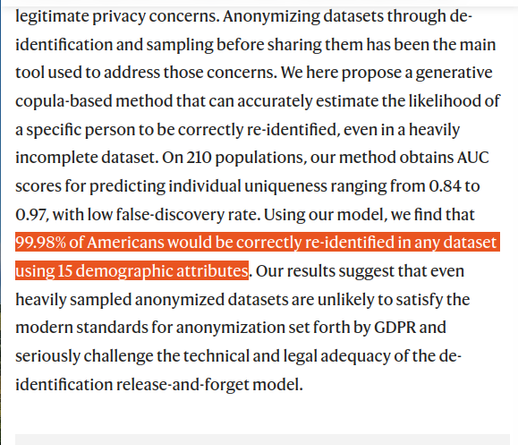I'm really trying to make sense of the new @mozillaofficial privacy policy.
Here's where I'm getting tripped up:
> Mozilla doesn’t sell data about you (in the way that most people think about ‘selling data’)
OK, sure. But if Moz isn't "selling my data in the way that most people think about selling data" then how *is* Moz selling my data?
